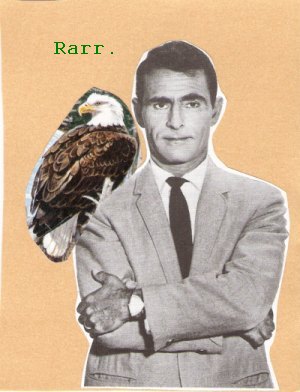In the last week or so, I have had the pleasure of watching three distinct entries in the realm of "black cinema":
Symbiopsychotaxiplasm,
Shaft, and
Killer of Sheep. I enjoyed all three films, but for very different reasons.

Symbio is an experimental independent film by the director William Greaves. Greaves is considered "the dean of black cinema" and has produced a few feature films as well as many documentaries. The documentaries all seem to center around black figures, history, or sociology of the black experience. I also saw Still a Brother this week which examined the black middle class and whether such a thing can even really exist, or whether it's just social imitation of the white middle class without being accepted by them. Anyway, Symbio was made in 1968 and was essentially a movie about making a movie. In some scenes we see the two actors in Central Park, but then we also see interactions between Greaves and the actors, and even between Greaves and the crew, and towards the end with a homeless man who wanders onscreen. There are also very interesting scenes where the crew of about ten would all sit in a room apart from Greaves and discuss how they perceived the meaning of the film and issues of reality (such as the audience not really being able to know whether the conversations they were having were authentic or scripted). This film, unlike the documentaries, had little to say about the black experience, but instead just seemed to be an experimental undertaking by a director who happened to be black.

Shaft is obviously the most well-known of the three movies. Generally considered the second blaxploitation film, one can see the key aspects and stereotypes that you would expect from such a film. Lately I've been thinking about why I even like blaxplotation. Negative stereotypes about black sexuality (ie. hypersexed) and tendency towards violence and crime are ever-present in this genre. Reading up on the history, the term "blaxploitation" was coined by the NAACP and the Urban League who condemned the genre and pushed for an end to these types of movies. Realistically blaxploitation films were only made for a 4 year period. However, for the most part these films were made for blacks by blacks. Black audiences tended to enjoy these films as they were a departure from the well-behaved, potentially tom-leaning black characters typically displayed in feature films. In blaxploitation, the black man gets away, he fucks white girls (and any other girls he wants), outsmarts the police, and beats up a ton of people. These characteristics can easily be seen as an outlet for the anger that had been pent up in the black community at that time. I also noticed that many films contain tangible statements about racial conflict, in a more honest way than you would see in mainstream films. I guess when it comes down to it, I like blaxploitation for many of the same reasons I enjoy gangster rap...it's supposed to be hedonistic and exaggerated. Just because it contains negative imagery doesn't mean that it also doesn't include real perspective on the difficulties of being a black person in America.
I already spoke of Killer of Sheep in a previous post, and now that I've actually seen the film, I can enthusiastically recommend it. The film is not centered around a narrative plot, but we do follow a few main characters through their activities over a couple of days in Watts. Whether the kids are playing by the train tracks, two men are trying to pick up an engine for a car, going to the liquor store, or just hanging around the house, the images are memorable and beautiful. The main character also works at a meatpacking warehouse where we see sheep being slaughtered over and over again. The juxtaposition of the the people in Watts with the scenes of the meatpacking plant creates a very strong visceral connection of oppression that I think is thought-provoking rather than heavy-handed.



